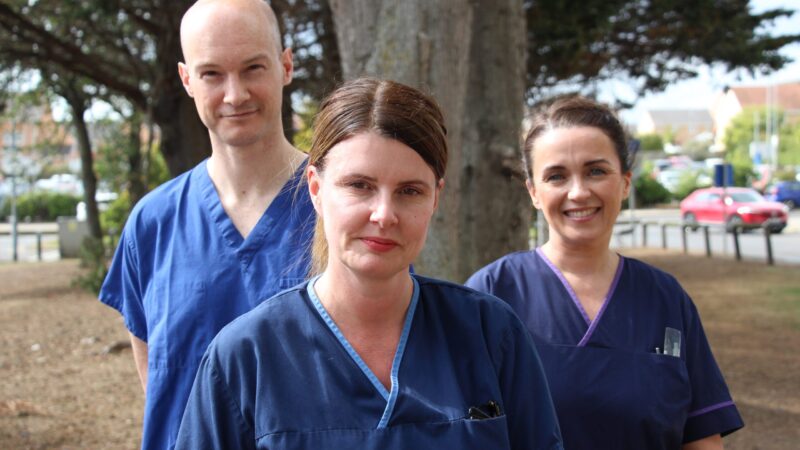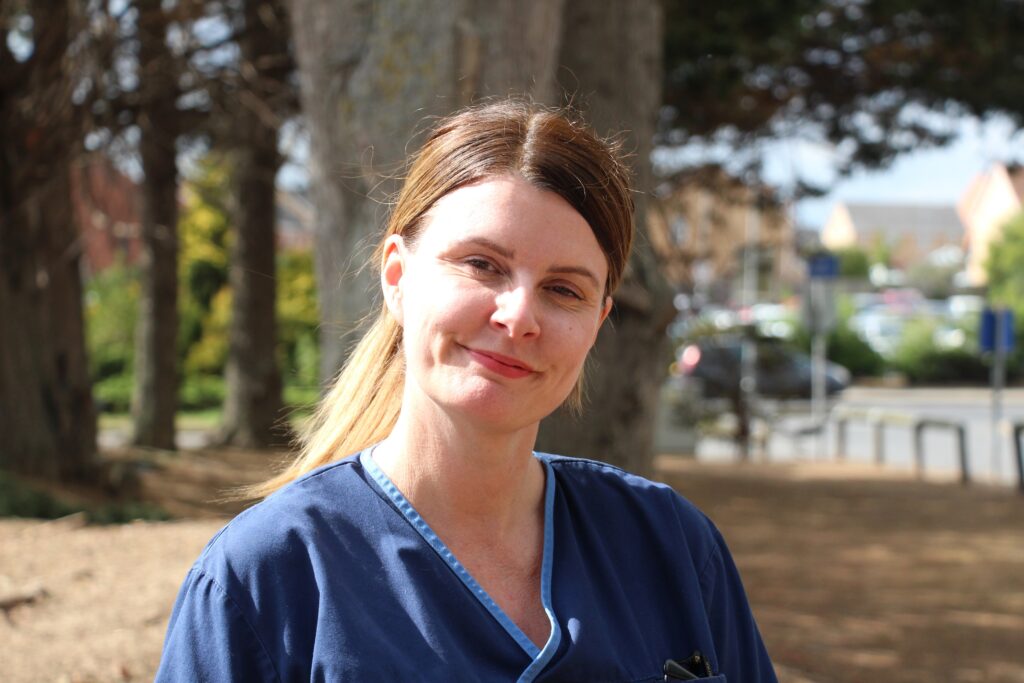
University Hospitals Tees has been shortlisted for a prestigious award in recognition of its work in reducing blood loss during labour.
Obstetric haemorrhaging (blood loss during childbirth of 500mls or more) can represent a real risk to a woman’s health.
A large haemorrhage of 1.5 litres or more, can be very serious and can lead to a longer in hospital, anaemia (low iron levels), increased risk of requiring a blood transfusion, effect metal health and can even effect baby-bonding and breastfeeding.
In severe cases it can be life threatening and require admission to intensive care.
Long term review
The maternity team at the University Hospital of North Tees has undertaken a long term review of how obstetric haemorrhaging is managed which led to implementing a new process for all women.
A risk assessment is carried out for each woman in labour and all blood loss is collected and weighed in real time leading to a more accurate measurement and allows for swifter action if needed.
This improves the traditional process of estimating blood loss which could result in unnecessary and wasteful transfusions.
The new process also standardises how haemorrhaging is recorded and guides clinicians to the most appropriate course of action, taking into account each woman’s unique situation.
This work has now been recognised by the leading medical publication the Heath Service Journal which has shortlisted the team for the Nursing-Led Patient Safety Initiative of the Year in this year’s Patient Safety Awards.
Thrilled
Midwife Danielle Stephens is the quality, safety and innovation lead for maternity. She said: “As quality improvement lead I am just thrilled for the team.
“Reaching the shortlist is in itself a huge achievement. It recognises all of the hard work that has gone in to this project.
“It has been a journey and challenging at times but we have all worked together to drive these changes and to make these improvements. This is a fantastic example of how team work can achieve great things.”

To implement the new methods, large scale simulations are ran every month, with real-time dynamic situations using actual labour ward and equipped theatre suites.
To ensure effective training, the team works with staff from all within maternity care, including midwives, obstetricians, anaesthetists, neonatal care, healthcare assistants and operating theatre staff.
The team has been in the leading cohort of the national obstetric bleeding study looking at improving obstetric haemorrhage outcomes and has adapted their work for use on the delivery suite.
The Health Service Journal Patient Safety Awards will be presented at a gala evening on Monday 15 September in Manchester.